CRO and SEO Working Together with Jason Fisher
When CRO and SEO work together, there is a cycle of increasing advantages, according to technical search engine marketer Jason Fisher. Find out how Jason combines SEO and CRO for a one-two punch that delivers results.
What if you were Google Search’s therapist? You would be tasked with understanding the mind of Google’s search algorithm, simultaneously seeking to understand the Google mind, and trying to help it make better decisions about the world it manipulates.
This, as it turns out, is the job of the search engine optimizer, or SEO. Maybe we should call them SETs: Search Engine Therapists. For they must not only understand the search algorithm, but they must also be able to help it make better decisions.
And they must do this with the active resistance of Google. Like humans, Google secretly does not want to be helped.
Our intrepid SETs will never have a complete understanding of the Google search mind. So, we are stuck with a simple mantra: “Take the best search traffic we can get and let the website sort it out.”
I’m the guy that focuses on “sorting out” the traffic. Making a website better at finding the buyers in your traffic is called Conversion Optimization, or CRO.
Here lies the delicate balance between making the search mind better at its job (SEO) and making the most of what comes your way (CRO).
Google is a cantankerous patient who makes the therapist pay for the privilege of helping it. We need to use all our weapons to maximize this traffic source.
This is why I invited Jason Fisher onto Intended Consequences. He is a search therapist who gets that the “sorting out” part of the equation is important.
* * *
Jsason Fisher has been doing search marketing for a long time. He cut his teeth on search engine marketing right at the beginning of the century, when search marketing was the like the Wild West. Some years later, he was working for a leading link development company, where he learned the power of back links.
He is filling the technical SEO skills gap, primarily for agencies. And he’s the kind of guy that throws around phrases like “competitor link graphs”.
I was curious how a guy like this sees conversion optimization in relation to his work. Here’s what I learned.
CRO vs. SEO: Advice to new online businesses.
We do a lot of consultations with businesses that aren’t ready for our conversion optimization services. My advice to them is this:
- Start working on your organic search strategy.
- Use search ads to begin bringing traffic.
- Then look at optimizing the site to maximize revenue.
Organic search optimization takes 12-24 months to implement. It takes time to research, to create valuable assets, and to build relevant backlinks. But this cannot be easily taken from the business.
Paid search can begin working immediately, but is subject to the bidding of your competition and the whims of the search engine ad algorithms.
Of course, you don’t have to put conversion optimization on hold during this time, especially if your paid search campaigns aren’t yet profitable.
What are the components of SEO?
For established websites, Jason discusses four main components of an organic search program:
- Accessibility
- Indexability
- On-page Success Factors
- Off-page Success Factors
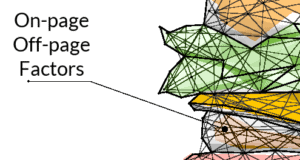
Portion of a hamburger with label “On-page/Off-page Factors”
These on-page and off-page success factors are the things the search engines look at to determine your authority for certain queries.
- Off-page Link Graph: The quality and quantity of links
- On-0page meta data: Title, internal and extermanl linking, etc.
Host performance is an on-page factor. If you have a good tech stack, you should be good.
Over-indexing and Under-indexing
An often overlooked aspect of your search strategy is that the wrong pages are being indexed.
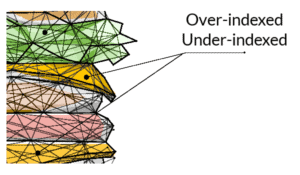
Over-indexing and under-indexing are important CRO and SEO factors.
Do you have a lot of poor-quality pages indexed on the search engines? This can be a problem.
Do you have quality pages that aren’t indexed? Of course, this should be addressed.
It may seem counter-intuitive that you should remove some content from the search index. Jason says that there is a limited “crawl allotment”. You may be wasting yours on poor-quality pages by marking them as “no index”.
Where does link development fit in today’s digital marketing practice?
Link building starts with creating valuable assets, things that others want to link to. In this sense, Jason sees link development like public relations: you’re trying to get people with authority to link to your work.
It takes a lot of work. Of those solicitation emails that us publishers get daily, only 1% results in a backlink.
Evergreen Content
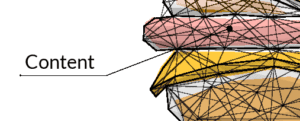
Content is the meat of the sandwich.
Evergreen content are those assets that can stand the test of time should be a focus of your efforts.
Update them and relaunch. Always be looking for ways to increase the quality. For example, transcribe videos on that page to text.
Content Blueprint
Start with the top keyword opportunities in your space. For those phrases that you don’t have content for, you can retarget existing content to them, or create new content that addresses them.
You are closing the gap on the most important search phrases for your business.
Your goal is to demonstrate to “the machines” that you are the authority in your space. People are going somewhere to get answers to questions relevant to your business. Why not your website?
Some of these topics may seem counter to your intuition. Why put DIY content on your site when you want to do the work for them? Because it tells the machines that you are the authority for those search phrases.
Can we outsource this content?
It depends on how complex your product or solution is. You may need a subject matter expert to truly develop quality content.
Content that gets visitors to stick around.
Content that gets others to link to it.
How can a website convert more visitors to prospects and customers?
Your website needs to
People overthink product and service pages. Jason likes to focus on those things that differentiate your offering.
Yes, testimonials and customer logos can increase your conversion rate. Yet, selling your brand and it’s values make a big difference.
This is harder than adding logos to your page.
It is especially difficult to do your own writing. We are too close to our businesses to present them in a way that the visitors need. Let an external resource start the page and then review it to ensure it reflects your advantages and brand voice.
All of this is the foundation for a great marketing program.
Search optimization provides the information that can be used across your marketing efforts.
- Ads
- Converison optimization
- Phone scripts
You will learn a great deal about your audience and your industry when you look through the eyes of the search landscape.
What do your prospects want? What are your competitors doing? What is missing from your messaging platform?
The content calendar is a marketing roadmap.
Understanding not only what you need to say, but when you need to release messages are key to success in search marketing and marketing in general.
When testing your website, you need to know when to run high-risk tests versus low-risk tests.
For example, during peak holiday traffic, you can learn much from low-risk testing during this high-traffic timeframe.
Write for the machines or write for the visitor?
Jason says that you always write for the visitor. Your selection of topics may be driven by the search engines’ understanding of your industry, but the content is for those entering the search phrases.
Links
Jason Fisher is an organic search marketing veteran with over 15 years of experience. Jason has helped numerous Digital Marketing Agencies all over the country increase their clients organic search channel sales & revenue by building & executing sound SEO Strategies.
- How to Compare Data When You Move from Google Analytics to GA4 - April 7, 2023
- CRO and SEO Working Together with Jason Fisher - November 17, 2022
- Why Web Design for Conversion Needs Science - May 4, 2022

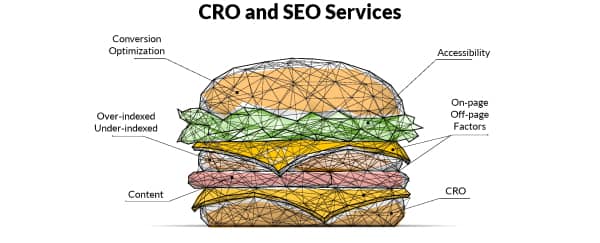
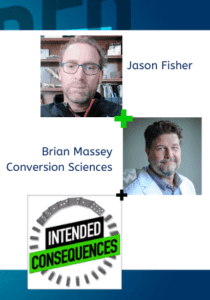
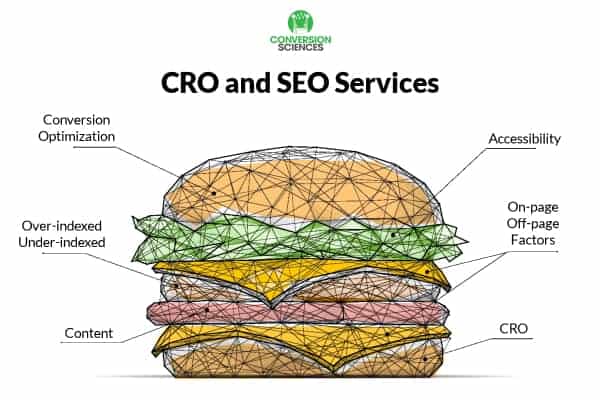
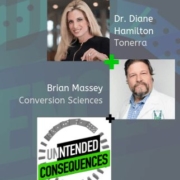
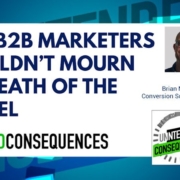
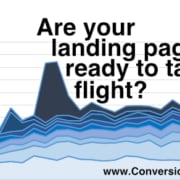

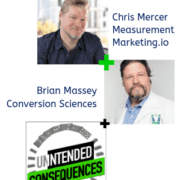
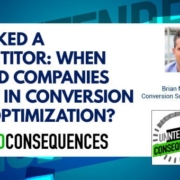







 (C) Conversion Sciences LLC
(C) Conversion Sciences LLC
The explanation was really amazing! I get that to reach and convert leads, SEO and CRO should work together. Nevertheless, it takes effort and specialised knowledge to optimise a website such that it both ranks in Google results and converts site visitors.
SEO and CRO are, as we like to say, a delicate balance! The explanation was really on point. Both SEO and CRO are fantastic tools to use for your online business. Although they appear to have distinct ends in mind, they all ultimately aim to increase business.